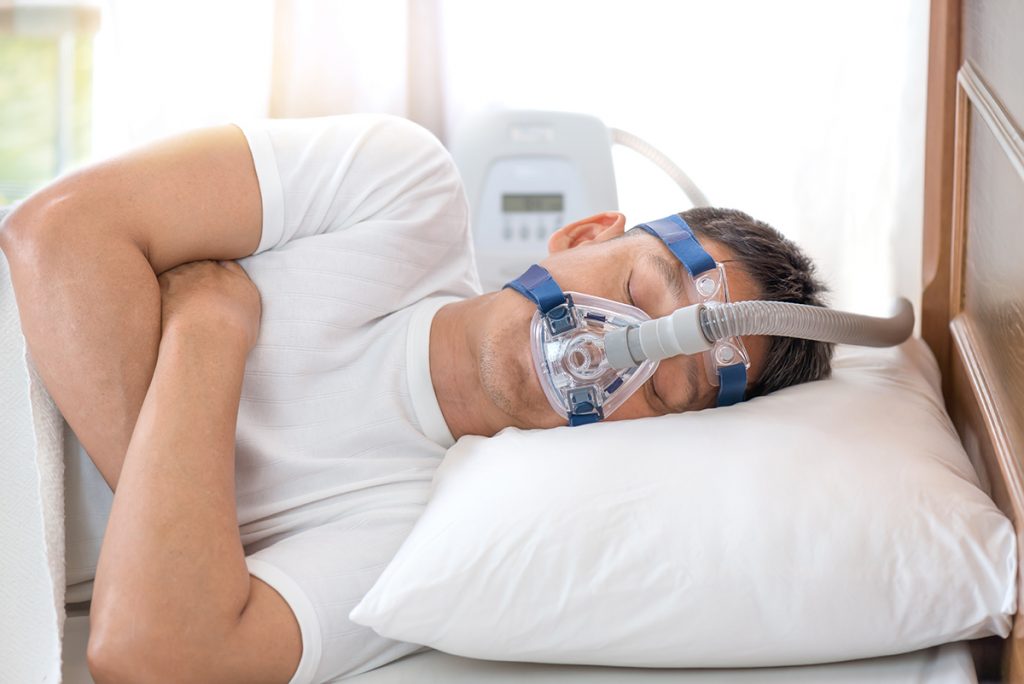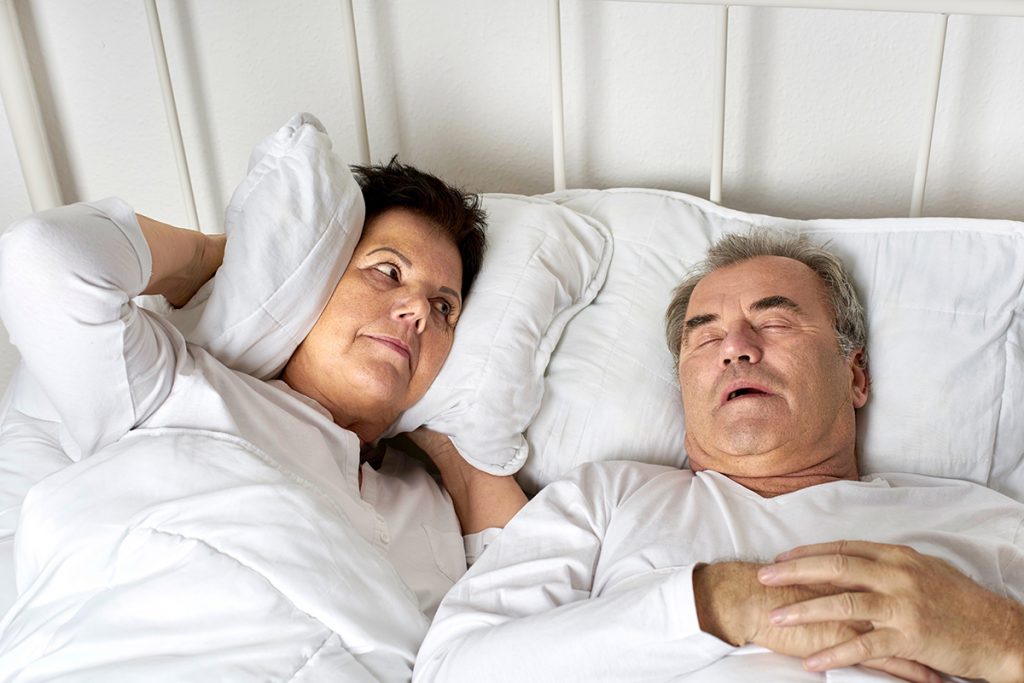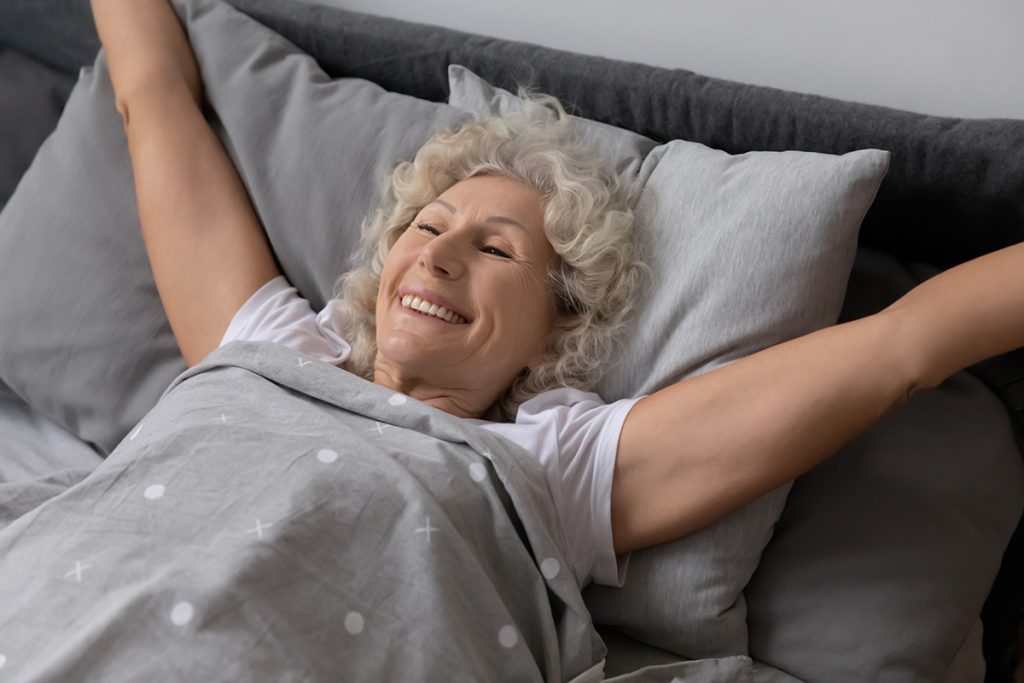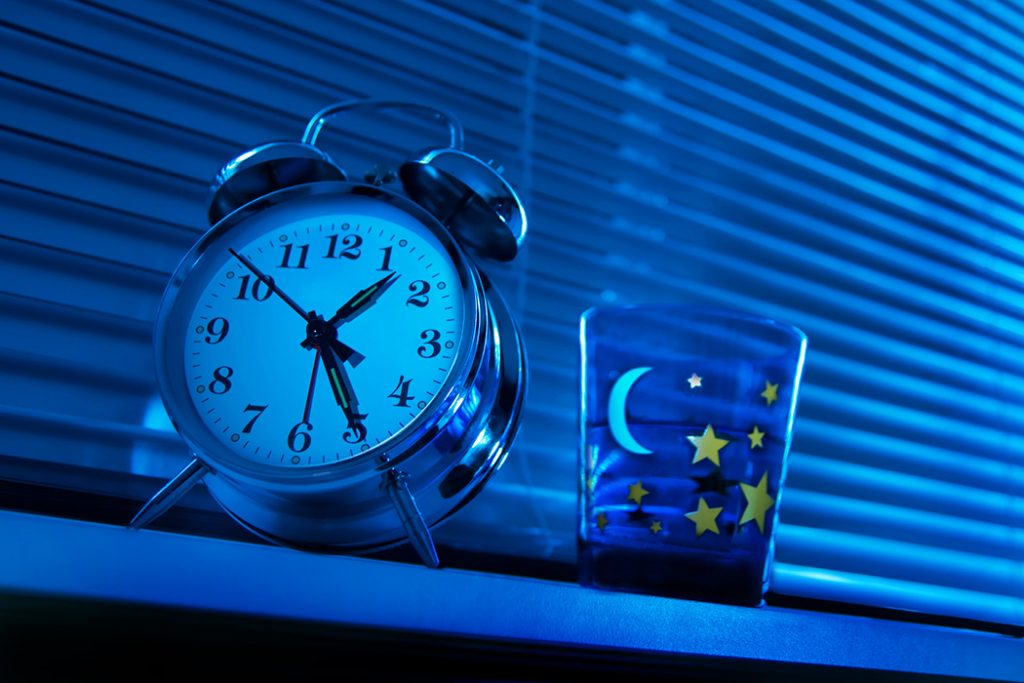Handling Stress at the Holidays
Holiday Time is Stressful. Are You Sleeping Well?
As you age the body produces lower levels of growth hormones, so you may experience a decrease in “slow wave” or deep sleep. Your sleep is more fragmented, waking you more frequently throughout the night. Frequent waking causes your circadian rhythm (that internal clock that tells you when to sleep and when to wake up) to shift. You may want to go to sleep earlier in the evening and wake up earlier in the morning. Or, as an older adult, you may need a nap during the day. In most cases, these sleep changes are pretty normal and don’t indicate a sleep problem.
Sadness and grief are normal for many at the holidays. It’s OK to express these feelings.
- The holidays don’t have to be perfect.
- Lonely? Reach out to others or volunteer your time.
- Set aside your differences with others until a more appropriate time.
- Stick to a budget.
- Plan ahead so you don’t rush at the last minute.
- Know your limitations. Say “no” if you are tired.
- Keep your healthy habits regarding meals and exercise. Even 15 minutes of exercise reduces stress. Try Tai Chi for a change of pace. Comfort foods like warm oatmeal boosts serotonin, a calming brain chemical.
If sadness and anxiety persists, and you are unable to handle routine chores, seek professional help. AW Health Care can help. (314) 330-7992
Sleep Smarts
It’s so important to get a good night’s sleep. With age, people get less restorative sleep due to sleep disruptions like these:
- Anxiety, stress and depression
- Medical conditions and diseases: asthma, allergies, Parkinson’s, hyperthyroidism, acid reflux, kidney disease, cancer and chronic pain.
- Medications: antidepressants, corticosteroids, thyroid, hormone, diuretics and BP meds and some common OTC meds that contain alcohol or caffeine
Encourage Better Sleep
On average, you need about 7 to 7 ½ hours of sleep each night. Your good bedtime habits will help you get that needed sleep.
What’s Sleep Hygiene? Those good bedtime habits are your sleep hygiene.
- Keep a regular sleep schedule; no napping!
- Don’t eat a heavy meal right before bedtime. Limit caffeine, alcohol and nicotine. These are stimulants.
- Turn off screens one hour before bedtime.
- Keep your bedroom dark, quiet and cool. Don’t read from a backlit device at night, like and iPad. Rather read with a soft bedside lamp.
- Use your bedroom for sleep. Don’t do work or watch TV in bed.
- Go to bed at the same time every night and follow a routine.
- If you can’t sleep, get out of bed. Go into another room and do something relaxing till
you feel sleepy. - Get regular exercise
Sleep Apnea
People with a disorder called sleep apnea stop breathing during sleep and must wake up to breathe. If you stop breathing for 10 seconds or more, this is considered to be mild sleep apnea. More than five apneas per hour is abnormal. More than 30 to 40 apneas per hour is considered severe. If left untreated, sleep apnea can result in a number of health problems including: high blood pressure, stroke, heart failure, irregular heart beat and heart attacks, diabetes, depression, worsening of ADHD, headaches and obesity.
Snoring
Men have narrower air passages than women and are more likely to snore. A narrow throat, a cleft palate, enlarged adenoids and other physical attributes that contribute to snoring are often hereditary. You have no control over your build or gender, but any extra fatty tissue around the throat and poor muscle tone does contribute to snoring. Exercising, losing weight and side sleeping may be all it takes to end your snoring.
If you have trouble sleeping, suspect you have sleep apnea or suffer snoring see your doctor.
Insomnia
Older adults also experience insomnia. According to the National Sleep Foundation, 44% of older persons experience one or more nighttime symptoms of insomnia several nights per week. Insomnia may be chronic (lasting over one month) or acute (lasting a few days or weeks).
Insomnia can take a toll on a person’s health. Insomnia can cause excessive daytime sleepiness, difficulty concentrating, and increased risk for accidents and illness as well as significantly reduced quality of life. Behavioral therapies and prescription medications singly or in combination are considered effective means to treat insomnia.
Research shows that sleep problems can sometimes be attributed to physical and psychiatric illnesses and the medications used to treat them. Or it may simply be too much caffeine or napping during the day. Don’t be afraid to tell your doctor about your sleep problems!
What Is Stress?
Stress is your body’s way of responding to any kind of demand or threat. Stress can be good or bad for you. It can spur you on to stay focused, energetic and alert. But too much stress can cause damage to your health, mood, relationships and quality of life.
Effects of Chronic Stress on You
- Lowered immune system
- You become more susceptible to illness. And the recovery process takes longer.
- Heart problems
- People look for stress relief in activities such as excessive drinking, overeating, and drug use. These activities damage arteries, blood vessels, and increase the risk of heart disease.
- Digestive issues
- Stress causes contractions of your digestive muscles and a decrease in the secretions necessary for digestion. Chronic stress can lead to problems such as irritable bowel syndrome and ulcers.
Common Stressors for Older Adults
- Changes in health or physical ability and increased dependence on others
- Loneliness and isolation due to death of a spouse, family member or pet, or divorce
- Lack of purpose especially at retirement
- Loss of Independence with regard to driving, daily activities, healthcare expenses
How Can I Fight The Effects of Stress?
Get moving. Regular exercise lifts the mood. Rhythmic exercises such as walking, running, swimming, and dancing are particularly effective.
Connect to others. Talking face-to-face with others can trigger hormones that relieve stress. Spend time with people who improve your mood; don’t let your responsibilities keep you from having a social life.
Engage your senses. —- sight, sound, taste, smell, touch, or movement. The key is to find the sensory input that works for you. Does listening to an uplifting song make you feel calm? Or smelling ground coffee? Or maybe petting an animal works quickly to make you feel centered?
Learn to relax. Relaxation techniques like yoga, meditation, and deep breathing activate the body’s relaxation response.
Eat a healthy diet. Eating a diet full of processed and convenience food, refined carbohydrates, and sugary snacks can worsen symptoms of stress, while a diet rich in fresh fruit and vegetables, high-quality protein, and omega-3 fatty acids are better.
Get your rest. See the suggestions on the opposite page. If you’re having trouble falling asleep or staying asleep at night, there are plenty of ways to improve your sleep so you feel less stressed and more productive and emotionally balanced.
Relaxation Techniques
Practicing relaxation techniques can reduce stress. These techniques refocus your attention on something calming and increase awareness of your body. There are three kinds of relaxation techniques:
Autogenic relaxation
Mentally repeat words or suggestions to help relax and reduce muscle tension. For example, imagine a peaceful setting. Focus on controlled, relaxed breathing. This will help slow your heart rate.
Progressive muscle relaxation
Start by tensing and relaxing the muscles and work your way up or down your body. Tense muscles for about five seconds and then relax for 30 seconds and repeat.
Visualization.
Using as many senses as you can, close your eyes and imagine relaxing at the ocean, for instance. Think about the smell of salt water, the sound of crashing waves and the warmth of the sun on your body.
Other relaxation techniques may include:
Deep breathing – Massage – Meditation Tai chi Yoga Biofeedback Music/Art therapy Aromatherapy Hydrotherapy











Comments are closed.